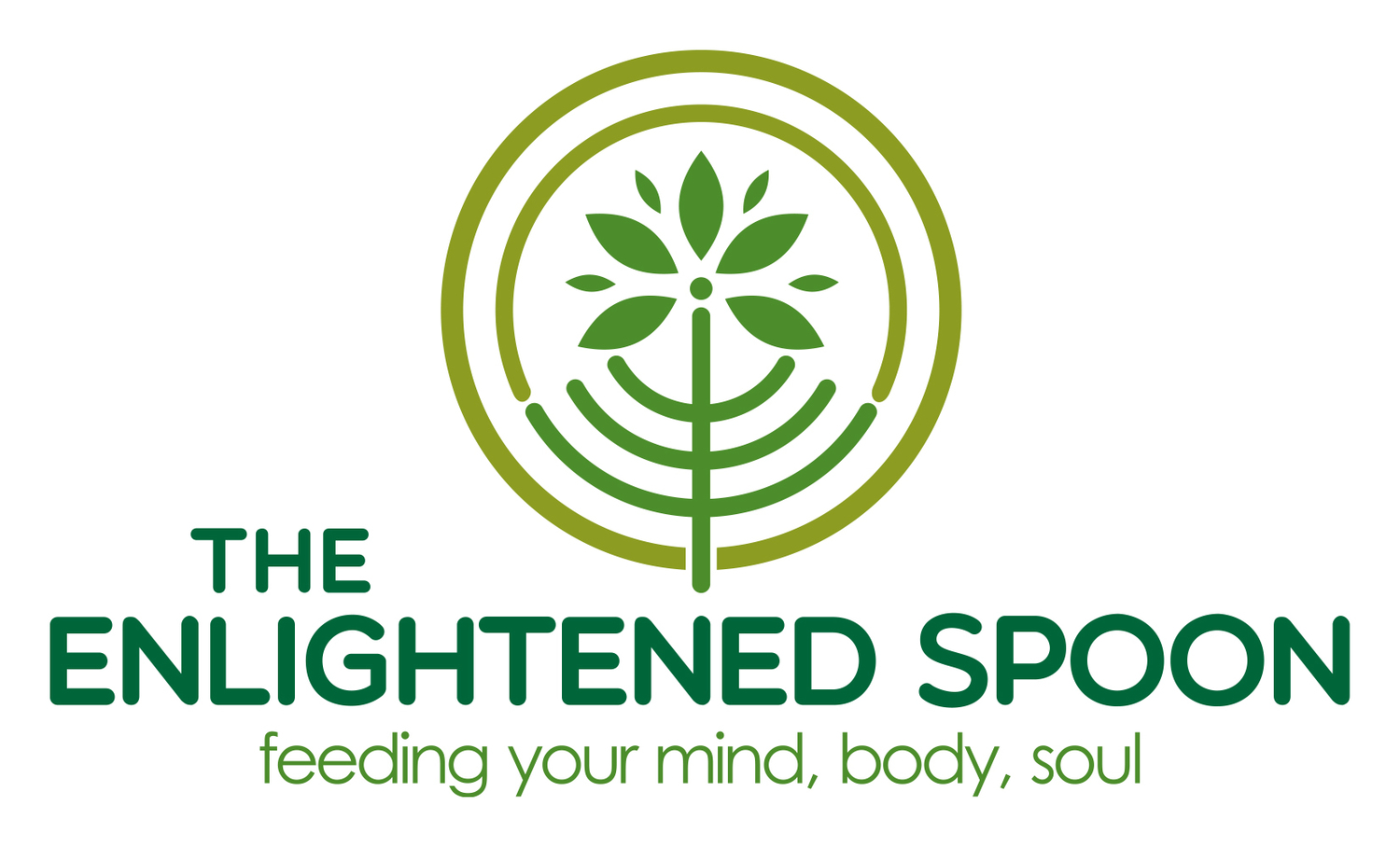Why is What You Eat Important To Maintain Balance in Your Busy Life?
/We’ve all heard the adage “you are what you eat”. This rings true especially when you’ve got a lot going on in life, juggling loads of different hats at work and at home. When you’re trying to maintain balance, what you eat is exceptionally important to help you maintain peak performance both physically and mentally.
Stress is the feeling of being under too much mental or emotional pressure. Pressure turns into stress when you feel unable to cope. Many of life’s demands can cause stress, particularly work, relationships and money problems, and different people handle this in different ways. Stress is not an illness in itself, but can cause serious illness if not addressed.
The Influences of Stress
The research shows that some stress is good. Stress “revs up” the body thanks to naturally occurring performance-enhancing chemicals like adrenaline and cortisol. This heightens ability in the short term.
If severe stress is allowed to go unchecked in the longer term, performance will ultimately decline. Not only that, the constant bombardment by stress-related chemicals like cortisol will weaken a person's body. Ultimately, this leads to degenerating health. Chronic stress and elevated cortisol levels also increase the risk for depression, mental illness, and lower life expectancy.
Managing Stress with Diet
When a person becomes overwhelmed, a common reaction is a sudden urge to eat, and usually these are the types of foods that won’t help you feel better in the long run.
Consuming foods that are of a “junk” nature actually increases the volume of stress on your body that’s already doing everything it can to keep you functioning at its optimum.
Worst Foods for Stress:
Sugary foods
When you eat sugary foods, blood sugar levels spike, and the body must release more cortisol to balance your blood-sugar levels. The problem is that increased cortisol can also cause sleep issues, decreased immune response, headaches, and unhealthy food cravings.
Additionally, rapidly fluctuating blood-sugar levels cause feelings that are similar to stress, including anxiety and fear.
Starchy, processed carbohydrate foods
For starters, starchy, processed carbs (eg. potato chips, cookies, and most “convenience foods” pre-packaged in a box) have very little nutritional value. They also lead to fluctuating blood-sugar levels that can cause those energy crashes and dips later in the day - also causing you to feel moody and irritable.
Feel bloated by the end of the day? These kinds of foods are most likely a part of the cause too!
Skipping meals
When you skip meals, you’re causing your blood-sugar levels to fluctuate wildly when it crashes. This is what happens when you start to get “hangry” (hungry-angry), affecting your moods, and not really helping you when you’re already going through a busy, stressful period.
The best thing you can do is maintain your blood-sugar levels at a constant level, preventing any of the energy peaks and troughs that can happen when you skip meals.
High caffeine intake
Caffeine, as found in coffee, black tea and green tea at varying levels isn’t necessarily a bad thing. The issue is more about “how much caffeine” you are consuming… If you enjoy the taste and flavour and have 1 cuppa a day, that’s not bad. However… if you find yourself “needing” that coffee jolt first thing in the morning to get you going, and then you’re downing 3, 4, 5 cups of coffee by the end of the day - that’s when you need to stop and consider what you’re doing.
Too much caffeine can spell trouble for your adrenal glands by overstimulating the body. And because it stimulates the nervous system, caffeine can cause a rise in blood pressure and heart rate that will ultimately increase feelings of anxiety. In fact, if you suffer from anxiety, one of the first things you should do is cut out caffeine.
It’s important to remember that caffeine isn’t found in just coffee. It’s also in soft drinks, certain types of tea, energy drinks, over-the-counter pain relievers, and even chocolate.
Best Foods For Stress
In order to optimise your body’s way of coping with stress and to help you maintain balance, eat a good diet made up of whole, unprocessed foods, and reduce the processed, packaged foods.
Try and incorporate the following in your diet:
Dark Leafy Vegetables - like spinach, broccoli, kale - are rich in folate, which helps your body produce mood-regulating neurotransmitters.
Magnesium-rich foods- Magnesium helps regulate cortisol and blood pressure. It gets flushed out of the body when you’re stressed so it’s crucial to replenish your stores. People with low magnesium levels (most of us, actually) are more likely to be more stressed and are at a greater risk for depression.
Seaweed and green leafy vegetables like spinach and Swiss chard can be excellent sources of magnesium, as are some beans, nuts, and seeds, like pumpkin, sunflower, and sesame seeds. Avocados and bananas also contain magnesium. Juicing or blending your vegetables in a smoothie is an excellent option to ensure you're getting enough of them in your diet.
Nuts - Stress depletes our B vitamin stores and snacking on nuts helps replenish them. B vitamins keep our neurotransmitters in their ‘happy place’ and help us handle the fight-or-flight stress response. A couple of servings of potassium-rich pistachios a day, for example, can lower blood pressure and reduce the strain stress puts on our heart.
Vitamin C-rich foods - Red peppers, dark leafy greens, kiwi, broccoli, berries, citrus fruits, tomatoes, peas, and papayas. Diets loaded with vitamin C-rich foods lower cortisol and help people cope. They also strengthen immunity.
Omega 3 fish oils - found in salmon, mackerel, sardines. In a study in ‘Brain, Behavior and Immunity’, people who took a daily omega-3 supplement (containing DHA and EPA) for 12 weeks reduced their anxiety by 20 percent compared to the placebo group.
Fermented foods - The secret to improving your mental health is in your gut, as unhealthy gut flora can have a detrimental impact on your brain health. Examples include sauerkraut, kefir, miso soup, kombucha, tempeh and kimchi.
Drink herbal teas - eg. Camomile, peppermint or ginger can be wonderfully soothing to the digestive tract, which can help with stress by calming the nervous system in your gut.
Indulge in Dark Chocolate - small amounts can be beneficial (2 squares a day!) Dark chocolate releases a neurotransmitter in your brain that temporarily blocks feelings of pain and depression.
Avoid caffeine, alcohol and smoking - Caffeine is a stimulant that increases adrenaline in the body, the very hormone you are looking to reduce. Since these habits tend to increase the negative impacts stress is already having on your body like raising your blood pressure, making you jittery, keeping you awake at night to name just a few, you enter into a vicious cycle of feeling more stressed out.
Eat small meals often - Maintaining steady blood sugar levels is key to stabilising mood.
There is so much you can do through just food and nutrition alone that can help you feel better and perform at your optimum. The above is just a starting point to give you some ideas.
Learn More Like This!
I’ll be sharing more tips like this and also creating some frameworks and worksheets for you at our upcoming one-day retreat in Amsterdam, Netherlands. Together, we can help you work out your very own blueprint for how your diet can work to bring more balance to your busy life.
Diet and nutrition is just one small part to the bigger equation - we’ll also be covering what kinds of movement/ fitness activities work better and why, and Eleni Meraki will be taking you through the emotional and mental mindset techniques that can help you stay connected and balanced in your everyday life.
Come join us in early 2020, click on the pic below to pre-register and hear about it when we launch!
Enjoyed these tips? Sign up to get 5 easy mind + body tips from me every month about how to stay fit, healthy and happy. Helping you be the best version of you. It’s the apps, books, quotes and mindful living tips to help you be a better human in this lifetime. Click to sign up for this month’s edition of 5 Good Things To Share!
You might also be interested in these previous articles:











